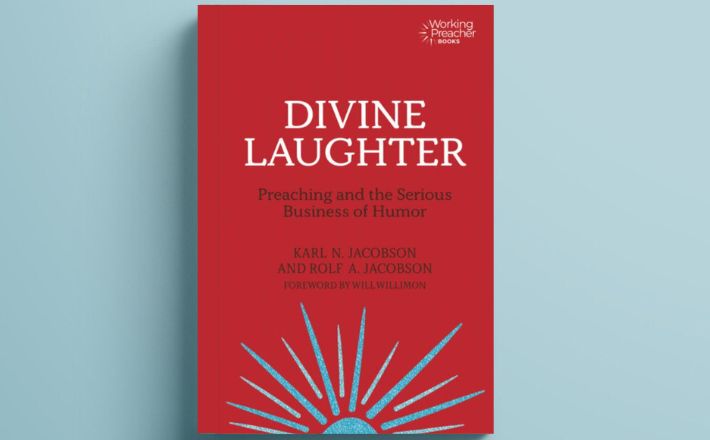Do you ever experience a “homiletical resistance” to humor?
Must the Bible always be read in a humorless, flat tone? Where did we learn that? Translators of Scripture may have attempted to protect pious readers from especially sexual humor that could be more evident in the original languages. Perhaps our own piety keeps us from laughing along with the absurd, surprising, or downright funny stories in the Bible. Professor Don Jewell (whom both authors Rolf and Karl Jacobson, as well as podcast host Karoline Lewis, shared) taught his students to read especially the dialogues in Scripture aloud, with inflection. Realizing that there is tone, and reading with different tones of voice, helps us imagine what the possible nuance of the text might be. And to be surprised.
What can preachers learn from stand-up comedians?
Karl recalls a routine by comedian Sam Kinison about “if Jesus had a wife,” noting how looking at the resurrection from a comedic angle subverts our piety and opens up what we think we know about the story. Preachers don’t have to try to be funny, but can explore how humor works on us, to learn from comedians.
- How can we be surprised by the text?
- Let the text startle us.
- When there’s humor in it, don’t try to ignore it.
We’ve learned from humor how to tackle difficult topics. Stand-up comedians are not afraid to point out absurdity. They also just look at the world differently. Preachers understand this, because we are trying to look at the world and notice the Holy Spirit at work. But we can also try on other ways of observing, slightly askew from the norm. Comedians can tell a truth in a way that disarms, when that same truth would otherwise raise our defenses too much to get through to us. Can preachers learn from those techniques?
Why is it important that God has a sense of humor?
Humor opens up possibilities, so when God has a sense of humor, that opens new spheres of reality for us. If we refuse to acknowledge that characteristic in God, we are denying part of creation, and God’s ongoing renewal of creation.
An incarnated Jesus must have laughed. It’s an essential part of being human! There is joy in heaven. God turns cynical laughter into joyful laughter. And there’s no way God does that with a straight face! That’s the reversal of resurrection.
What does a “joyful homiletic” mean?
The purpose of the Gospel is to raise the dead. A joyful homiletic is about stepping into the most difficult times in people’s lives and proclaiming something unexpected. Bring in the conversation partner—humor—that reminds us that death is not the last word.
A joyful homiletic is also humble—so that we have the ability to laugh at ourselves and the tragic things. “The ability to laugh in the midst of life’s pain is a subversive witness to hope.” Joy and laughter can be a way of living out resistance. Humor is creative—we partner with God in the ongoing work of creating new possibilities.
Recognizing divine humor in Scripture can get you “unstuck” in your sermon process!
For more on this volume in the Working Preacher Books series, Divine Laughter: Preaching and the Serious Business of Humor, listen to a podcast episode recorded in 2023 or watch it on YouTube, in which Rolf Jacobson and his brother, the late Karl Jacobson, discuss the book with Karoline Lewis.
